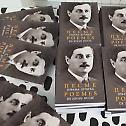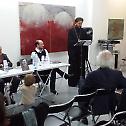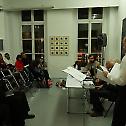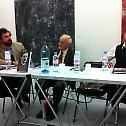Culture
Holy Emperor Constantine and the Edict of Milan
17. October 2013 - 11:36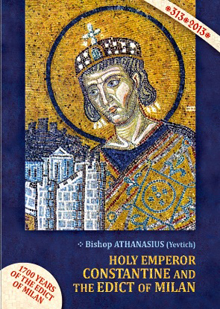 In 2013 Christian world celebrates 1700 years since the day when the Providence of God spoke through the holy Emperor Constantine and freedom was given to the Christian faith. Commemorating the 1700 years since the Edict of Milan of 313, Sebastian Press of the Western American Diocese of the Serbian Orthodox Church published a book by Bishop Athanasius Yevtich, Holy Emperor Constantine and the Edict of Milan. The book has 72 pages and was translated by Popadija Aleksandra Petrovich. This excellent overview of the historical circumstances that lead to the conversion of the first Christian emperor and to the publication of a document that was called "Edict of Milan", was originally published in Serbian by the Brotherhood of St. Simeon the Myrrh-gusher, Vrnjci 2013. “The Edict of Milan” is calling on civil authorities everywhere to respect the right of believers to worship freely and to express their faith publicly.
In 2013 Christian world celebrates 1700 years since the day when the Providence of God spoke through the holy Emperor Constantine and freedom was given to the Christian faith. Commemorating the 1700 years since the Edict of Milan of 313, Sebastian Press of the Western American Diocese of the Serbian Orthodox Church published a book by Bishop Athanasius Yevtich, Holy Emperor Constantine and the Edict of Milan. The book has 72 pages and was translated by Popadija Aleksandra Petrovich. This excellent overview of the historical circumstances that lead to the conversion of the first Christian emperor and to the publication of a document that was called "Edict of Milan", was originally published in Serbian by the Brotherhood of St. Simeon the Myrrh-gusher, Vrnjci 2013. “The Edict of Milan” is calling on civil authorities everywhere to respect the right of believers to worship freely and to express their faith publicly.
Promotion of the Book of Poetry by Jovan Dučić
14. October 2013 - 13:21The Serbian Cultural Centre in Paris on Friday evening, October 11, 2013, hosted an extraordinary event. A promotion of the book of poetry by Jovan Dučić and an exhibition of unpublished Dučić correspondence was organized by book publishers in cooperation with the Serbian Cultural Centre in Paris.
This is a major cultural event of the year because we are marking the seventieth anniversary of Dučić's death by issuing the first bilingual edition translations of poems in French of this prince of Serbian poetry. About the book spoke: literary critic Slavko Maleševic, editor of this edition Ljubomir Mihajlovic, the publisher Bishop Maxim Vasiljevic, a poet Komnen Bećirović, while actor Sasha Petronijević Dučićevu read poetry in French and Serbian.
National Art Museum presents Orthodox exhibition
25. September 2013 - 14:57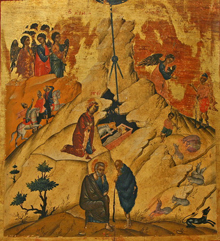 The Orthodox exhibition is dedicated to the 1025th anniversary of the Baptism of Rus.
The Orthodox exhibition is dedicated to the 1025th anniversary of the Baptism of Rus.
The image of Christ in iconography has never been so widely and fully represented in Belarus. 9 museums from Belarus, Russia, Serbia and Ukraine present two hundred images depicting the life of Jesus Christ from Nativity to Ascension.
The oldest of the Orthodox icons is the Russian one dated to the 15th century. It is represented by the State Tretyakov Gallery and the private museum of Russian Icons in Moscow. The Kiev’s icon dates back to 16th century. For the first time the exhibition features the Balkan region.
Medieval church treasures from Hildesheim featured in fall exhibition at the Metropolitan
19. September 2013 - 14:25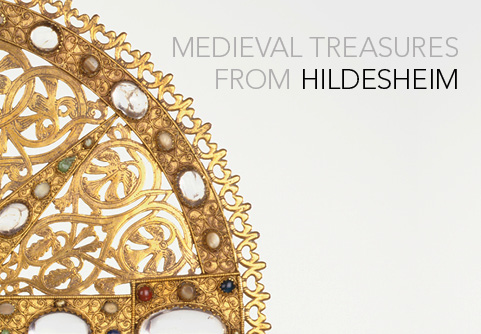
Germany's Hildesheim Cathedral in Lower Saxony has one of the most complete surviving ensembles of ecclesiastical furnishings and treasures in Europe, including many medieval masterpieces made between about 1000 and 1250. The cathedral was designated a UNESCO world cultural heritage site in 1985. Major renovations that are currently underway provide the opportunity for Medieval Treasures from Hildesheim-an extraordinary selection of about 50 medieval church treasures, most of which have never been shown outside Europe-to travel to The Metropolitan Museum of Art, where they will be on view beginning September 17.
Haghia Sophia: The First Great Martyr of Christian Art and Architecture
5. September 2013 - 12:25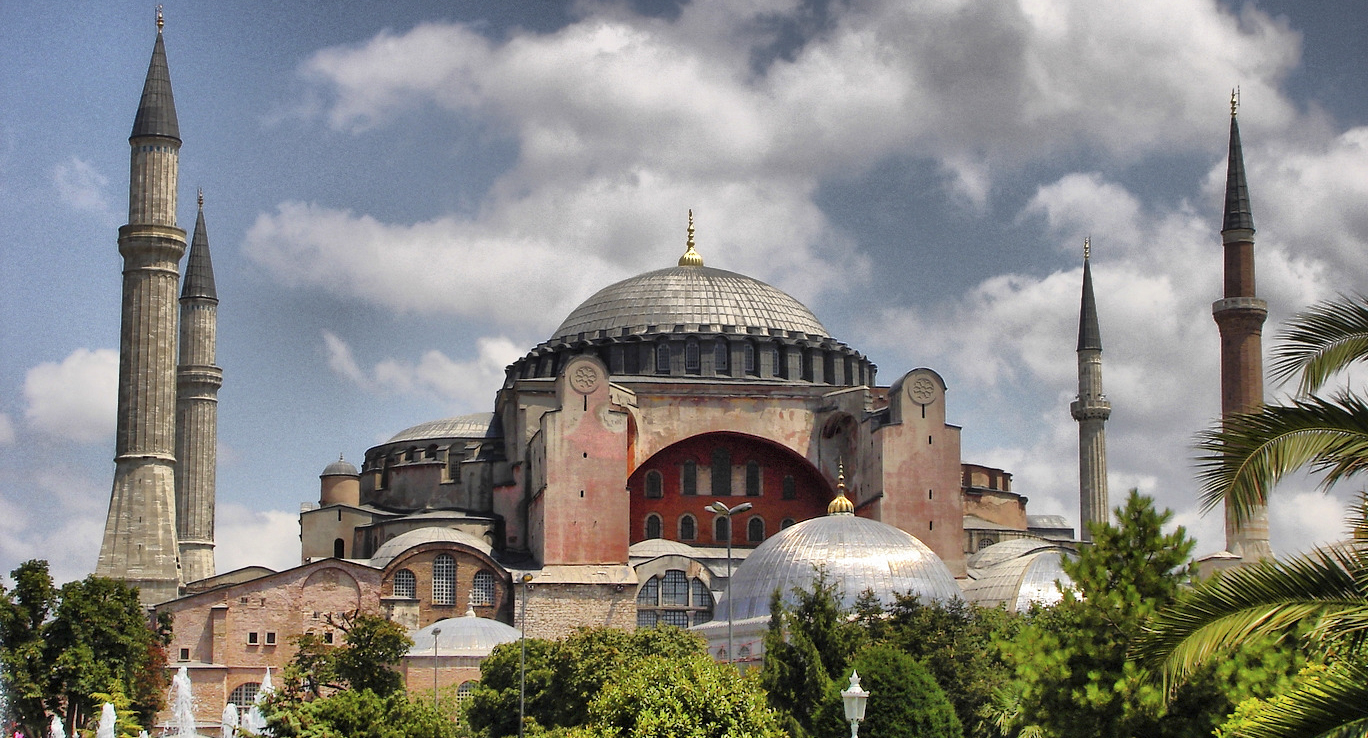 It all started with the Church of Haghia Sophia in Nicaea. Then Haghia Sophia in Trabzon. Both of these glorious Byzantine churches – which functioned for many decades as museums – have now been turned into mosques, a harsh reminder of their forced conversion centuries ago. And this in accordance with recent sudden decisions by modern political authorities.
It all started with the Church of Haghia Sophia in Nicaea. Then Haghia Sophia in Trabzon. Both of these glorious Byzantine churches – which functioned for many decades as museums – have now been turned into mosques, a harsh reminder of their forced conversion centuries ago. And this in accordance with recent sudden decisions by modern political authorities.
UNESCO fears of cultural heritage in Syria
2. September 2013 - 10:48World cultural heritage sited endangered, among which, the old part of Damascus, antique “Cities of death” on the north, a Crusader castle Krak des Chevaliers, the old part of Bozrah, as well as the ancient Aleppo

The World organization for culture UNESCO is concerned about the cultural heritage in Syria. Director General Irina Bokova said on Thursday night in Paris that cultural values contributed to the identification of people with their country. “Destruction of one often leads to the destruction of the second”. All sides involved in the fight must protect cultural heritage, she said. The UNESCO received reports on damages of museums and buildings, as well as the theft of cultural property. In addition, there is illegal mining, since such sites are not guarded anymore.

